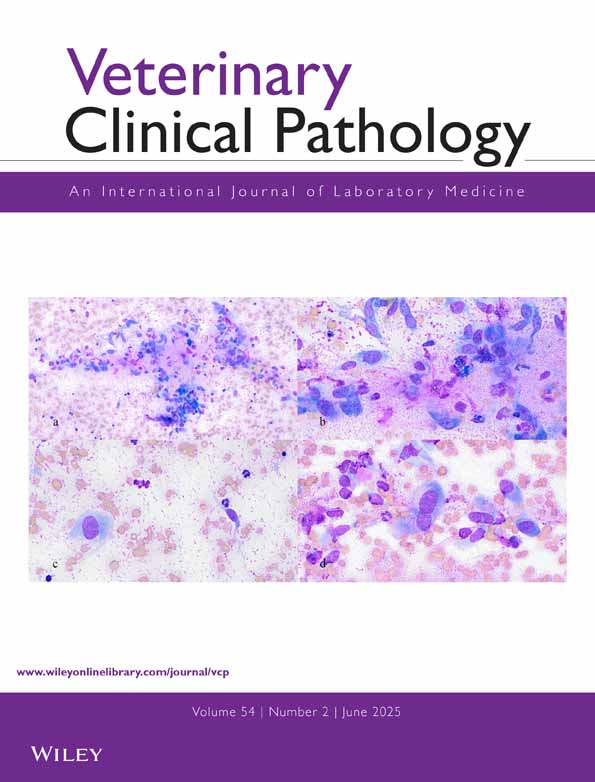Effect of Desmopresssin in Normal Dogs and Dogs with von Willebrand's Disease
Summary
Desmopressin acetate (DDAVPR), a synthetic analogue of vasopressin, was slowly administered intravenously to 12 healthy dogs of various breeds and 10 Doberman Pinschers with mild-to-moderate type I von Willebrand's disease at a dose of 0.3, 1.0 and 3.0 μg/kg body weight. Plasma von Willebrand factor: antigen was measured by an electroimmunoassay prior to and 30, 60, 90, 120 and 180 minutes after desmopressin infusion. Desmopressin induced only very modest and statistically insignificant increases in von Willebrand factor in both groups. We conclude that the response to desmopressin as measured by circulating von Willebrand factor is much less pronounced in healthy dogs and in Doberman Pinschers with von Willebrand's disease than in humans.




